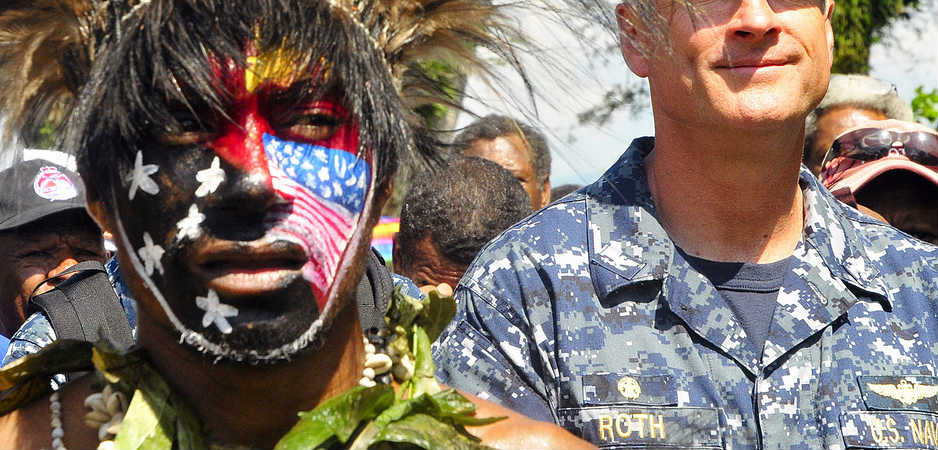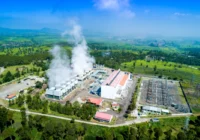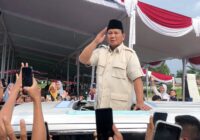The case of Freeport is a clear illustration of Papua and the Indonesian government being held hostage by global capitalists.
Papua, formerly known as Dutch New Guinea, is the western half of New Guinea, an island in the Pacific. For decades, Papua has been a region associated with conflict and has rarely received international press coverage. There have been many civilian casualties resulting from violence between Indonesian security forces and the local community. To this day, there are no visible signs that the conflict will end anytime soon.
As is widely known, Papua has one of the largest gold mines in the world. Forbes Wilson, the director of Freeport—one of the world’s largest producers of copper and gold—discovered Papua’s natural resource potential after conducting surveys on Mount Ersberg in 1959. Freeport’s desire to exploit Papua’s gold mines at that time was hindered by a change in political constellations in the 1960s. The government under then-Indonesian President Sukarno took over Papua from the Dutch in 1961, after which Freeport was prevented from setting up operations because of Sukarno’s opposition toward foreign enterprises.
However, after Suharto ousted Sukarno in a 1965 coup, the former decided to issue a law that authorized and encouraged foreign investment. Freeport became the first foreign enterprise to operate in Indonesia and secured long-term contracts with the Suharto regime.
Since then, Freeport’s approach toward Papua’s resources has been aggressive and almost militarist in nature, which has caused deep-running tensions between Freeport, the Indonesian military and the local Papuan community.
Freeport’s assertion of its presence in Papua continues to be strong in the 21st century. Indonesian Corruption Watch (ICW), a Jakarta-based nongovernmental organization, has reported that security fund payments have been made by Freeport to Indonesian security forces. According to ICW’s data, which is sourced from financial statements of Freeport, the company issued a fund worth $79.1 million from 2001 to 2010. This funding is believed to have affected the neutrality of the armed forces and fueled tensions between them and local residents, due to the widespread belief that only the military has reaped the benefits of revenue generated by Papua’s natural resources.
The severity of the conflict increased soon after the assassination of Leo Yogi, the commander of the Free Papua Movement for Paniai region, in May 2015. Even though the situation has improved slightly following Indonesian President Jokowi’s decision to grant clemency to five Papuan political prisoners and offer access to journalists to enter Papua, Freeport’s decision to build a copper smelter not in Papua, but in Gresik—an island in the region of Java that is of great distance from Papua—has increased tensions again between Papuans, Freeport and the Indonesian government.
The decision has received much criticism from Papuans, with the governor of Papua, Luke Enembe, threatening to expel Freeport if the smelter is not developed in his vicinity. The construction of smelter located locally in Papua would be beneficial, because such a project would help the local economy by attracting up to 30 billion rupiah in investment and creating up to 10,000 jobs. These resources are desperately needed in Papua, given the high levels of unemployment and poverty.
Throughout this time, Freeport has revealed that the main reason behind its decision was the limited availability of water and electricity in Papua. In reality, there are two other reasons why Freeport has been persistent with its plan to construct smelter in Gresik.
First, the history of tension and increasing instability in Papua has created an environment of fear that could potentially disrupt the company’s operations, thereby requiring Freeport to spend a substantial amount of money to enhance security for its operations.
Second, concerns over the availability of labor are key. It is widely known—based on data provided by the Human Development Index (HDI)—that HDI ratings in Papua are one of the lowest in the region. Local labor in Papua is considered operationally unprofitable and unable to meet the needs of the processing plant in the short-term. Alternatively, Freeport could employ labor from outside Papua, which would then require higher salaries to be paid.
Enter Uncle Sam
Freeport has always claimed that it has fulfilled its obligation to distribute profits to the Indonesian government, which only holds 9.3% of shares. Nevertheless, the company has never issued any net profit reports publicly for 48 years, since its establishment in 1967. Its success in lobbying the Indonesian government has not been without help from the United States. US Ambassador to Indonesia Robert Blake reportedly held talks with a number of top Indonesian officials concerning Freeport to smoothen the process of extending the existing contract between Freeport and Indonesia, which ends in 2021.
While Jokowi’s government has made attempts to not be swept by the tide of global capitalism by introducing a mineral ore export ban and tax increases on metal concentrate shipments in January, it has been influenced by plans to invite top US energy companies “to gather opinions regarding the current energy situation in Indonesia.” This is most likely an attempt to ensure continued investments in the energy sector.
The case of Freeport is a clear illustration of Papua and the Indonesian government being held hostage by global capitalists and local politics. One year into his presidency, it remains to be seen how committed and successful Jokowi’s administration will be in lifting the stigma behind Papua and improving economic inequalities and human rights in the territory in the years to come.
The views expressed in this article are the author’s own and do not necessarily reflect Fair Observer’s editorial policy.
Photo Credit: US Pacific Command/ Flickr
 We bring you perspectives from around the world. Help us to inform and educate. Your donation is tax-deductible. Join over 400 people to become a donor or you could choose to be a sponsor.
We bring you perspectives from around the world. Help us to inform and educate. Your donation is tax-deductible. Join over 400 people to become a donor or you could choose to be a sponsor.
Support Fair Observer
We rely on your support for our independence, diversity and quality.
For more than 10 years, Fair Observer has been free, fair and independent. No billionaire owns us, no advertisers control us. We are a reader-supported nonprofit. Unlike many other publications, we keep our content free for readers regardless of where they live or whether they can afford to pay. We have no paywalls and no ads.
In the post-truth era of fake news, echo chambers and filter bubbles, we publish a plurality of perspectives from around the world. Anyone can publish with us, but everyone goes through a rigorous editorial process. So, you get fact-checked, well-reasoned content instead of noise.
We publish 2,500+ voices from 90+ countries. We also conduct education and training programs
on subjects ranging from digital media and journalism to writing and critical thinking. This
doesn’t come cheap. Servers, editors, trainers and web developers cost
money.
Please consider supporting us on a regular basis as a recurring donor or a
sustaining member.
Will you support FO’s journalism?
We rely on your support for our independence, diversity and quality.







Comment